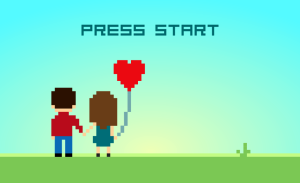Sharing your life with someone else. Always being together: if not in person, then at least in mind. Sharing in the other person’s pain (but also in their happiness of course). Always having an obligation to someone. Not being fully free.
These are merely some of the consequences of being in a relationship. I wonder: what draws so many people into a relationship? Why do so many people appear to have the urge to always have that other special person in their lives?
Is it is to share your feelings and ideas with someone who truly cares about you? Who doesn’t judge you, who wishes the best for you and tries to help you? That might be true, but it seems like you don’t have to be in a relationship to have such experiences. You might just as well talk to friends – who by definition care about you, want the best for you and try to help you – and achieve pretty much the same results.
While sharing your feelings and ideas with a caring and non-judgmental individual is undoubtedly valuable, the beauty of emotional support extends beyond traditional relationships. Close friends, who inherently hold your well-being at heart and actively offer assistance, can create a safe haven for open conversations. Yet, when it comes to addressing deeper emotional challenges or intricate dynamics, seeking professional guidance, such as online relationship counselling, can offer a unique perspective. Trained therapists can provide specialized tools and insights tailored to your circumstances, facilitating a more comprehensive understanding of your emotions and relationships. Just as friends play a significant role in our lives, professional counseling can complement these connections by providing a structured and expert-driven approach to navigating complex emotional landscapes.
Is it for sex then? To have sexual intercourse with someone regularly without having to go through the seduction process over and over again? Maybe, but again: you don’t need to be in a relationship for that. You can have sex with pretty much anyone who wants to have sex with you; also with the same person, so that you don’t have to go through the seduction process over and over again. ‘But’, someone might object, ‘sex with someone you’re not in a relationship with is less intimate in some way, than sex with your girlfriend/boyfriend.’ But is it really? Because why would the fact that you are in relationship with someone, which appears to be nothing but a social construct, add to the intimacy of sex? It might be that being in love with each other does, but then again: you don’t need to be in a relationship to have that experience.
Also, when it comes to the intricacies of dating and relationships, the notion of intimacy is a multifaceted one. While some may argue that a relationship enhances the depth of intimacy, it’s essential to question whether this is solely a result of societal constructs. Love and connection can transcend the boundaries of conventional relationships, as Adult friend finder reviews reveal. These reviews shed light on experiences where individuals seek connections that prioritize open communication, trust, and mutual desires. In the grand tapestry of human relationships, the definition of intimacy is indeed complex, often extending beyond the confines of traditional partnerships. Love, whether within or outside the bounds of a formal relationship, can offer profound experiences that challenge our understanding of what it truly means to connect with another person on a deeply intimate level.
So why then, if not for companionship or sex?
Maybe it is to boost our own perception of ourselves. Maybe it is the idea that we mean so much to someone that that person is willing to give up a large part of their lives, time and bodies for us. And the prettier, smarter, kinder that other person is, the more special it is that that person chooses you. And it might just be that feeling of possession that we, insecure humans, crave for, and why we value being in a relationship with someone.
Or maybe it is because it is just the normal thing to do, according to the unwritten rules of society. But one could question whether this is ever a good reason to do anything.
The best reason I can think of is when you plan on having, or actually have, children with someone. For in case you have children with someone, it might only be fair towards that person to devote all your resources to him/her and your children – if only because it might be best for your children, which from an evolutionary perspective seems an important consideration in one’s actions. However, I doubt many teenagers, or people in their twenties, consciously decide to get into a relationship with someone for this reason.
None of this is of course a problem; not if both parties agree to the relationship. But it might shed light on the not-so-conscious reasons that drive people into a relationship.



